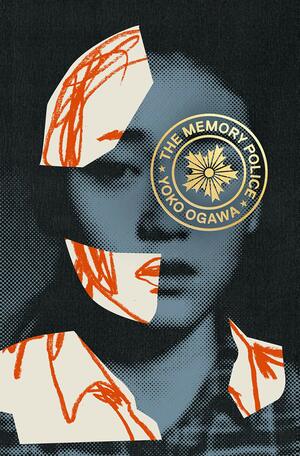
The blurb:
Hat, ribbon, bird, rose. To the people on the island, a disappeared thing no longer has any meaning. It can be burned in the garden, thrown in the river or handed over to the Memory Police. Soon enough, the island forgets it ever existed.
When a young novelist discovers that her editor is in danger of being taken away by the Memory Police, she desperately wants to save him. For some reason, he doesn’t forget, and it’s becoming increasingly difficult for him to hide his memories. Who knows what will vanish next?
The Memory Police is not my typical read; dystopias usually don't do it for me, with a few notable exceptions. But this is a remarkable book, really.
No explanation is given for how or why the forgetting works but, sometimes, the residents of this unknown island wake up and something has just...disappeared. Residents must burn or throw away anything they have that contains the disappeared item and, before long, they won't remember it. If an object is somehow saved, they won't recognise it or know its use. Even the word will become meaningless.
The novel's nameless narrator is a novelist, writing gentle romances (though her latest one does take a deeply disturbing turn as she progresses through it, in a way that echoes the main story). The other main characters are R, her editor, and an old man who lives on the remains of an old boat at the town's dock. Except for R, people are identified by characteristics or their relationship to someone else, like "R's wife": nobody is named. I wonder if that's deliberate: given a name, could people be disappeared, like other things?
The protagonist's own mother was disappeared by the Memory Police, the guardians of the island who search for the few people who still remember things that the rest of the island has forgotten. When she realises that R can, like her mother, remember, she decides to hide him in her house, building a hidden compartment for him. Ogawa has apparently said in interviews that Diary of a Young Girl by Anne Frank was one of her inspirations in the writing of The Memory Police.
It's not a long book, but I read it slowly; it's slow-paced, and the characters are almost translucent, hollowed out by loss after loss that they can't even remember any more. But still the protagonist and the old man resist by hiding R. As more and more things disappear and life on the island becomes thinner and thinner, they try, with R's help, to remember things. Similarly, the protagonist in her novel faces the loss of things she hasn't used. Totalitarianism—not any particular example of it, just the concept in general—is the target of The Memory Police; how much can be taken away before what is left is no longer enough to sustain a life?
Started: 19 July 2025
Finished: 24 July 2025
Back home.
More books.